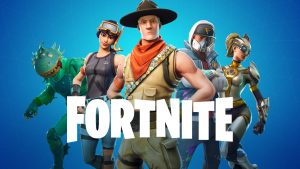 Car racing games have long attracted avid gamers. There’s the Gran Turismo series, the appeal of which wasn’t just the number of cars and tracks available, but also the ability to simulate a racing season and race against other players online. The cars could be heavily tuned, and for the most part different models had their own handling quirks and personalities.
Car racing games have long attracted avid gamers. There’s the Gran Turismo series, the appeal of which wasn’t just the number of cars and tracks available, but also the ability to simulate a racing season and race against other players online. The cars could be heavily tuned, and for the most part different models had their own handling quirks and personalities.
Articles Posted in Esports
The Mid Lane: Esports News – 4/9/20
The Mid Lane is a rundown of developments in the world of esports.
It is no surprise that COVID-19 is impacting esports players, tournaments and the overall landscape of the growing industry. (But Facebook did something, too!)
Esports and Gaming in the Time of COVID-19
The Mid Lane: Esports News – 1/22/20
The Mid Lane is a rundown of developments in the world of esports.
Growth, taxes and malls? An unconventional esports location is dominating the industry news this week. The latest news roundup indicates that all signs point to the continual progression of esports.
Three Recent Partnerships by Riot Games Showcase the Potential of Organization Sponsorship Deals
 Last month in Paris, G2 Esports and FunPlus Phoenix competed in front of thousands of fans for the title of world champion, with millions more tuning in to live streams from around the globe. These teams did not compete on a soccer pitch, a basketball court, or a baseball diamond. Instead, they met on stage at Paris’ AccorHotels Arena, a venue more commonly associated with concerts than competitive sporting events. This event was no “ordinary” world championship; the teams in question participated in one of esports’ preeminent events, the League of Legends World Championship. Despite the title’s humble beginnings, Riot Games’ multiplayer online battle arena (MOBA) offering has grown to levels of popularity historically associated with marquee conventional sports, and the World Championship is League’s crowning achievement.
Last month in Paris, G2 Esports and FunPlus Phoenix competed in front of thousands of fans for the title of world champion, with millions more tuning in to live streams from around the globe. These teams did not compete on a soccer pitch, a basketball court, or a baseball diamond. Instead, they met on stage at Paris’ AccorHotels Arena, a venue more commonly associated with concerts than competitive sporting events. This event was no “ordinary” world championship; the teams in question participated in one of esports’ preeminent events, the League of Legends World Championship. Despite the title’s humble beginnings, Riot Games’ multiplayer online battle arena (MOBA) offering has grown to levels of popularity historically associated with marquee conventional sports, and the World Championship is League’s crowning achievement.
The Mid Lane: Esports News – 12/11/19
Investments, acquisitions, more investments and more acquisitions make up the bulk of industry news this week, along with another sign of respect from sports-adjacent industries (hello Emmys!):
News of Note – 11/5/19 – Esports Edition
This latest news roundup is just another reminder that, as anchored in technology as esports may be, it ultimately involves many of the same issues faced by more established industries. Whether in regard to funding, corporate and franchising structures, employment contracts, real estate investment, cybersecurity concerns, or the challenge of embedding brand awareness deeper into the public consciousness, the business of esports is just that—business.
How Real Is Too Real? Lawsuits Challenge Video Game Publishers for Including Real-World Content in Virtual Worlds
“For a bunch of hairless apes, we’ve actually managed to invent some pretty incredible things”
—Ernest Cline, Ready Player One
It’s an incredible time to be alive. The Digital Age has helped us reached levels of efficiency and connectivity that were unimaginable just a few decades ago. In his award-winning novel, Ready Player One, Ernest Cline, paints a picture of a not-so distant future where people spend the majority of their time experiencing life in the “Oasis,” a realistic virtual world where users interact with one another in amazing virtual environments that mimic reality in many ways, but where the rules of physics and nature are malleable, allowing the game publisher to create wildly entertaining games where virtually anything can happen. While we may not have the Oasis yet, today’s video games are rapidly evolving into similar immersive social platforms where users can play, compete and express themselves in settings that seem to be inevitably headed towards something that looks increasingly like Cline’s Oasis. One way that video game makers are able to make game backdrops more realistic and thus enrich the overall user experience is to incorporate real-world ideas and content to more closely emulate reality in the game. In response, an increasing number of intellectual property owners who object when their “property” gets incorporated into video games are bringing lawsuits that will help define the boundaries of intellectual property law in this new arena.
Creators Take Care: SCOTUS Adjusts the Timing of the Copyright Registration Tango
 Fortnite is the most popular video game in the world. So popular that it was last year’s highest earning video game, grossing more than $2.4 billion in 2018 alone. So popular, in fact, that its fans successfully convinced Sony to reverse its longstanding policy against cross-platform gaming, thus allowing PlayStation Fortniters to play with their PC, mobile and other console-owning friends. Fortnite is also free.
Fortnite is the most popular video game in the world. So popular that it was last year’s highest earning video game, grossing more than $2.4 billion in 2018 alone. So popular, in fact, that its fans successfully convinced Sony to reverse its longstanding policy against cross-platform gaming, thus allowing PlayStation Fortniters to play with their PC, mobile and other console-owning friends. Fortnite is also free.
If Videogames and Apps Are Addictive, Should Designers Worry about Potential Legal Liability?
 What do videogames, cigarettes and slot machines have in common? They’re all addicting, according to the World Health Organization (WHO). Since addiction and legal liability can sometimes go hand in hand, game designers (and app developers) would do well to pay attention whenever a new habit or hobby looks like it might be deemed harmful.
What do videogames, cigarettes and slot machines have in common? They’re all addicting, according to the World Health Organization (WHO). Since addiction and legal liability can sometimes go hand in hand, game designers (and app developers) would do well to pay attention whenever a new habit or hobby looks like it might be deemed harmful.
 Internet & Social Media Law Blog
Internet & Social Media Law Blog





